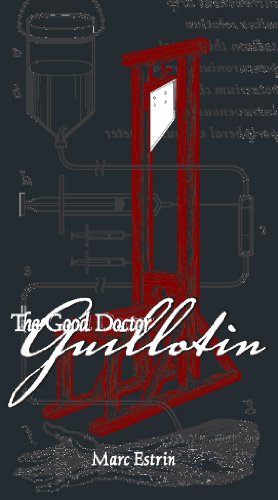The Good Doctor Guillotin
The lives of five men converge in on one epochal event – the first use of the guillotine as a method of capital punishment in Revolutionary France. The book follows the paths of each of these men – the first customer of the device, his priest, the executioner, the builder of the device, and its designer, the good doctor as they come together on that lovely spring day in 1792.
The book is an interesting mix of fiction, essay, and authorial intrusion, a blend of philosophy, modern political commentary, and historical fiction. The dialog is mannered – more a vehicle for philosophical concepts than human interaction – and the writing overall is not easy, but certainly interesting and at times even elegant.
As a polemic against the death penalty, it is effective; as an historical novel, somewhat less so. While the details of life under the Ancien Régime, and then under the Revolution, were graphic and convincing, I felt held somewhat at a distance – as though I was being read a report or a philosophical treatise about the Revolution, and not brought into the story itself. That said, I would still recommend this book for readers with an interest in Revolutionary France, and those looking for a more challenging philosophical read.










